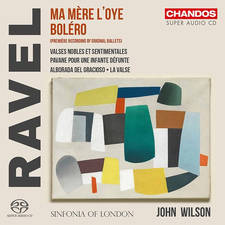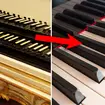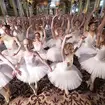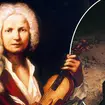The Full Works Concert - Friday 14 March 2014
Great classical music on tonight's Concert include one of Mozart's most popular symphonies, Beethoven's most tempestuous piano sonata, and Tchaikovsky's evergreen Swan Lake.
All but two of Mozart’s 41 symphonies are composed in major keys. The Symphony No. 40 - one of his two minor key symphonies - is arguably the most popular of all with one of the catchiest opening movements of any symphony; within seconds you're transported to a tense world of opulence and bad wigs. The work soon came to the attention of Beethoven. As well as paying homage to it by writing out passages in his own hand, it is thought that Beethoven was inspired by Mozart's last movement when he wrote his own Symphony No.5.
Composed between 1803 and 1804, the 'Appassionata' Piano Sonata No.23 is one of Beethoven's most tempestuous works for the piano. He composed it at a time when his hearing was deteriorating rapidly. Its revolutionary spirit is established right at the very outset as the ghostly opening is brutally swept aside by a lacerating outburst featuring full chords in both hands. The central theme and four variations act as a soothing balm before a pair of dramatic chords announces the finale, of explosive dynamic contrasts, capped by a breathless coda of venomous power and intensity. At one memorable performance given by Beethoven, he had a technician on stand-by whose job it was to prize away the broken strings as the Master pummelled the instrument into submission.
The Violin Concerto in G major is the ninth concerto from an influential and important series of 12, published in 1733, known as 'L'arte del violino' by the Italian Baroque violinist and composer Pietro Locatelli. The virtuosic style and artistry present in the work strongly influenced violin playing in the 18th century and cemented Locatelli's reputation as a pioneer of modern violin technique. As opposed to his previous music, which models itself on the Roman style of Baroque composition best exemplified by Arcangelo Corelli, the concerti of 'L'arte del violino' were created in the newer Venetian style of Antonio Vivaldi.
When Swan Lake was premiered in 1877, the reception it garnered was lukewarm at best. The dancers themselves gave Tchaikovsky a particularly hard time, declaring his music to be simply too difficult to dance to. Music of such richness and depth was not, they thought, the kind that should accompany their balletic moves. Today, the ballet is universally adored, from the graceful Waltz in Act I to the playful Dance of the Cygnets. Tchaikovsky evidently enjoyed composing the music for Swan Lake, writing far more material than would ever be required. Indeed, the version most commonly encountered today is, in fact, an edited one, created after Tchaikovsky’s death and considerably shorter than the original, full-length work. It’s now the world’s most frequently performed ballet.
Wolfgang Amadeus Mozart: Symphony No.40 in G minor K.550
John Nelson conducts the Orchestral Ensemble of Paris
Ludwig van Beethoven: Piano Sonata No.23 in F minor Opus 57 'Appassionata'
Piano: Nikolai Lugansky
Pietro Antonio Locatelli: Violin Concerto in G major Opus 3 No.9
Violin: Guiliano Carmignola
Cello: Guido Larisch
Harpsichord: Torsten Johann
Andrea Marcon conducts Venice Baroque Orchestra
Peter Ilich Tchaikovsky: Suite, Swan Lake
Alexander Lazarev conducts the Bolshoi Symphony Orchestra













